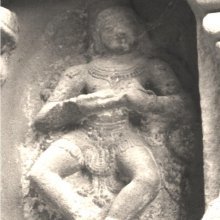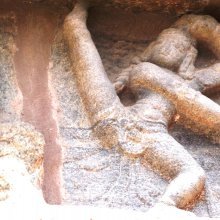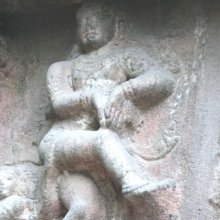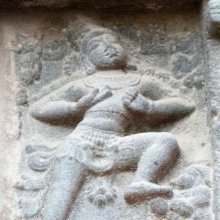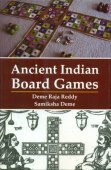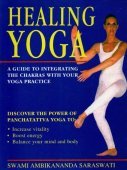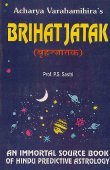Moving, Move, Moved: 3 definitions
Introduction:
Moving means something in Hinduism, Sanskrit. If you want to know the exact meaning, history, etymology or English translation of this term then check out the descriptions on this page. Add your comment or reference to a book if you want to contribute to this summary article.
Images (photo gallery)
(+61 more images available)
In Hinduism
Yoga (school of philosophy)
Source: ORA: Amanaska (king of all yogas): A Critical Edition and Annotated Translation by Jason Birch1) The Moving about (of Kuṇḍalinī—the highest power) is denoted by the Sanskrit term Sañcalana, according to the Amanaska Yoga treatise dealing with meditation, absorption, yogic powers and liberation.—Accordingly, as Īśvara says to Vāmadeva: “[...] [Now], I shall define the nature of that highest, mind-free absorption which arises for those devoted to constant practice. [...] By means of an absorption for two Kalās, with the moving about (sañcalana) of Kuṇḍalinī, there arises in a flash a single trembling of [the Yogin's] mind. By means of an absorption of four Kalās, his sleep ceases. In his heart, the Yogin observes a point of fiery light like a spark. [...]”.
2) Moving (across the earth) is denoted by the Sanskrit term Bhū-Caratva, according to the Amanaska Yoga.—Accordingly, as Īśvara says to Vāmadeva: “[...] [Now], I shall define the nature of that highest, mind-free absorption which arises for those devoted to constant practice. [...] By means of an absorption for a period of twelve days, the state of moving across the earth (bhūcaratva) is achieved. Within half the time [it takes to] blink an eyelid, [the Yogin can] travel [anywhere] around the world. [...]”.
3) Moving things are denoted by the Sanskrit term Cara, according to the Viṣṇudharma verse 96.1 and 4.—Accordingly, “O Brahmin, you mentioned that this Brahma is eternal and from it this whole world [consisting of] moving (cara) and unmoving [things] arose [...]. Therefore, how could the [ever-changing] world arise from the eternal and omnipresent [Brahma], which is free from transformation and even devoid of quality?”.

Yoga is originally considered a branch of Hindu philosophy (astika), but both ancient and modern Yoga combine the physical, mental and spiritual. Yoga teaches various physical techniques also known as āsanas (postures), used for various purposes (eg., meditation, contemplation, relaxation).
Vedanta (school of philosophy)
Source: ORA: Amanaska (king of all yogas): (Advaita Vedanta)(Whatever is) Moving is denoted by the Sanskrit term Cara, according to the Māṇḍūkyopaniṣatkārikā 3.31-32.—Accordingly, while discussing duality and mental activity: “All this duality which is [comprising of] whatever is moving (cara) and motionless is [just] a visible object of the mind. For when [the state of] no-mind of mind [arises], duality is not perceived. [Why is this?] When the mind does not conceptualize because [one has] realized the truth of the self, then, it goes to the state of no mind. Therefore, in the absence of perceivable objects, there is no perception [of duality]”.

Vedanta (वेदान्त, vedānta) refers to a school of orthodox Hindu philosophy (astika), drawing its subject-matter from the Upanishads. There are a number of sub-schools of Vedanta, however all of them expound on the basic teaching of the ultimate reality (brahman) and liberation (moksha) of the individual soul (atman).
Languages of India and abroad
Kannada-English dictionary
Source: Alar: Kannada-English corpusMōve (ಮೋವೆ):—[noun] the area or region close to one’s face of someone or which something is facing.
Kannada is a Dravidian language (as opposed to the Indo-European language family) mainly spoken in the southwestern region of India.
See also (Relevant definitions)
Starts with: Moving plant, Moving upward.
Ends with: Unmoving.
Full-text (+5493): Calita, Cancala, Cala, Samcarin, Khecara, Calana, Akashayana, Jangama, Mabhr, Carin, Cup, Khacara, Cara, Copana, Marb, Valana, Sancarita, Prakampin, Gaganagati, Vicala.
Relevant text
Search found 468 books and stories containing Moving, Move, Moved, Mōve; (plurals include: Movings, Moves, Moveds, Mōves). You can also click to the full overview containing English textual excerpts. Below are direct links for the most relevant articles:
Philosophy of language in the Five Nikayas (by K.T.S. Sarao)
2.3. The Mechanics of Movement < [Chapter 5 - Language and Thought]
2.5(e). Aṅguttara Nikāya (Numerical Discourses of the Buddha) < [Chapter 1 - Introduction]
10. Semantics and Truth < [Chapter 2 - Concept of Philosophy of Language]
Brahma Sutras (Shankaracharya) (by George Thibaut)
II, 2, 7 < [Second Adhyāya, Second Pāda]
IV, 2, 14 < [Fourth Adhyāya, Second Pāda]
II, 3, 16 < [Second Adhyāya, Third Pāda]
Padarthadharmasamgraha and Nyayakandali (by Ganganatha Jha)
Text 150 < [Chapter 6a - On Actions]
Text 46 < [Chapter 6a - On Qualities]
Text 39: Of Air < [Chapter 4 - Of Special Substances]
Bhagavati-sutra (Viyaha-pannatti) (by K. C. Lalwani)
Part 3 - On movement down < [Chapter 4]
Part 10 - On duration/stay in the life-cycles < [Chapter 2]
Part 3 - Nine questions on karma bondage < [Chapter 1]
Garga Samhita (English) (by Danavir Goswami)
Verse 2.9.8 < [Chapter 9 - Brahmā’s Prayers]
Verse 1.11.63 < [Chapter 11 - Description of Śrī Kṛṣṇacandra’s Birth]
Verse 2.20.11 < [Chapter 20 - The Rāsa-dance Pastime]
Related products
(+8 more products available)
